Content Warning: This article discusses eating disorders, associated behaviors, and a reference to self-harm.
April Bannister was actively receiving treatment from the University of Iowa’s inpatient eating disorder clinic when UI Hospitals and Clinics officials announced its closure last year.
Since February 2021, Bannister said she sought care from the clinic on seven different occasions. The 23-year-old said the eating disorder made her hair fall out, caused her to develop a heart condition, gave her constant chest pain, and made her constantly cold.
“If I hadn’t had this program, I would have been dead seven times over,” Bannister said in an interview with The Daily Iowan in 2022.
When Bannister learned the UI was phasing out its inpatient program by stopping the admission of new patients in September 2022, she turned to social media.
“The University of Iowa Hospitals and Clinics’ eating disorder program is being shut down, and people are going to die,” Bannister posted to her Instagram account after learning the news.
Bannister’s post garnered nearly 3,000 likes, and a petition started the same day on change.org stands just shy of 10,000 digital signatures. These online efforts, however, did not keep the inpatient clinic open.
While the clinic’s residential inpatient program is now closed, UIHC still offers inpatient hospitalization to patients experiencing immediate medical distress associated with eating disorders, including nutritional deficits, cognitive impairments, and severe dehydration.
After the closure was announced, Bannister said she transferred to a clinic in Colorado later in September of last year. She received treatment for three months before returning to Iowa City.
Upon returning, the former UI student said she relapsed and was in desperate need of medical help.
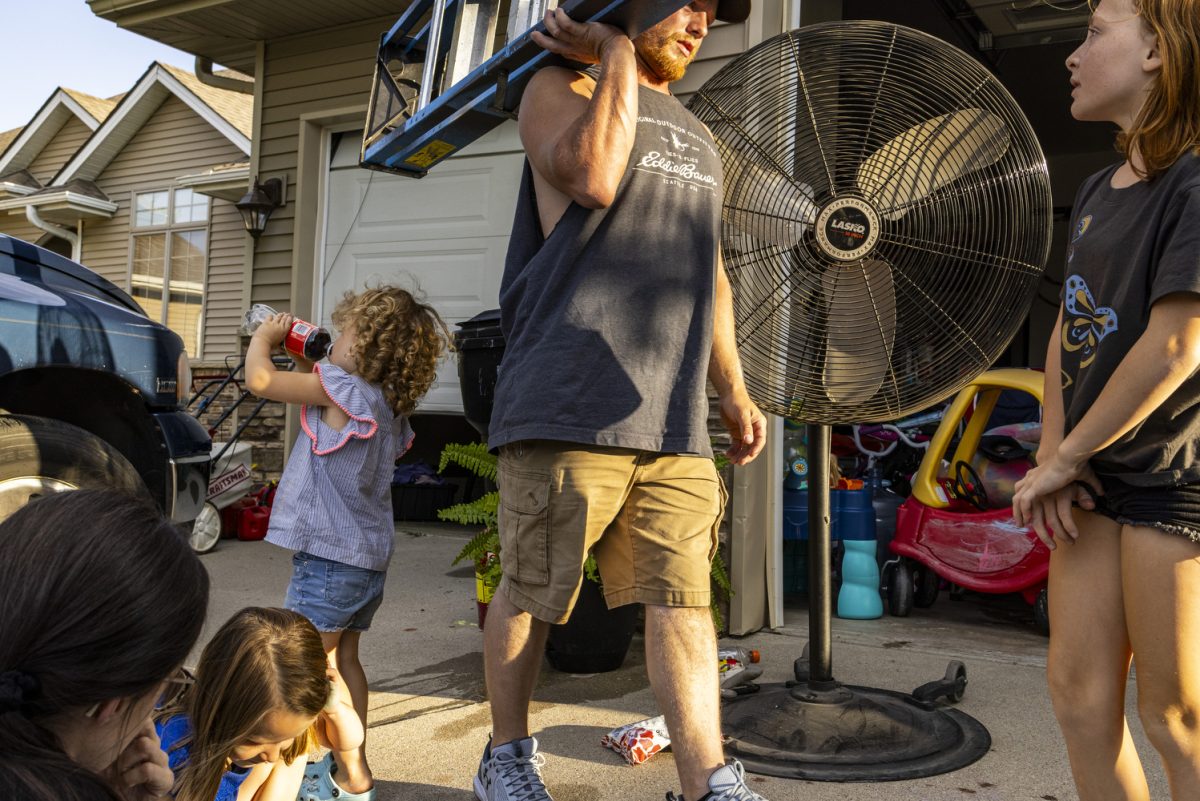
“I went back to work starting in January and proceeded to get very, very ill with my eating disorder,” Bannister said in a follow-up interview with the DI earlier this month.
Bannister says she reached the point where her physical health required medical treatment. She said she was admitted to the UI’s hospital to receive acute and immediate medical care — a service still offered after the closure of the inpatient eating disorder clinic.
After being hospitalized for about a week in April, Bannister said she was discharged and ended up going to Denver for a second time to receive what she considers “the highest level of care in this country.”
“I never would have reached that point — the point of being as underweight as I was, as having lost the amount of weight that I did, as like my heart being in the condition that it was — if Iowa’s eating disorder program had been open,” Bannister said.

Lacking access to treatment in Iowa
After the UI announced it was closing its inpatient eating disorder clinic, it released a statement explaining the closure and what would fill its place. According to the release, the closure allowed the reallocation of resources to focus on aiding patients with “acute mental health care needs.”
According to a recent statement provided by the UI Hospitals and Clinics media relations team, the “eating disorder treatment team works with patients to determine the best level of care for their needs, whether it is through our outpatient clinic, partial hospitalization services, or inpatient services.”
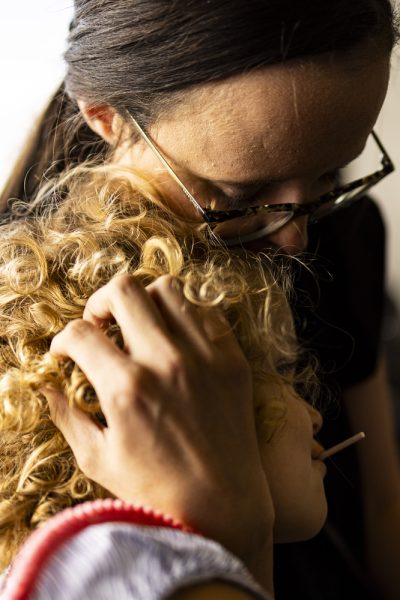
Inpatient services include care for situations where there are “extensive medical needs related to symptoms,” according to the program’s website.
Bannister said having access to various forms of treatment has been key to comprehensive care for her disordered eating.
She explained that inpatient care programs typically couple medical treatment with mental treatment. Bannister described eating disorders as “mental illnesses that come with physical health issues,” and said in her experience, both components need to be treated.
The physical health components are highly regulated in inpatient programs, Bannister said, with labs and weight being constantly monitored. While outpatient programs focus on the mental component of eating disorders, she said that hyper-monitorization of eating behaviors is exclusive to inpatient programs.
In the case where an individual is looking for inpatient care beyond immediate medical treatment, those resources are not offered at any clinic or institution in the state of Iowa.
That was true for Lexie Olgren, an Ankeny, Iowa, resident who previously received treatment at Iowa’s inpatient clinic in 2021 before its closure.
Last year, Olgren says her physical and mental health reached the point where she realized she needed to return to the UI’s inpatient clinic. When she confided in a friend about her health, Olgren was informed the inpatient clinic was closing.
Olgren said at that point, she was forcing herself to throw up eight to 10 times a day and was harming herself. Despite that, she says she was not able to find an inpatient program close enough for her to be admitted to.
While she was able to receive care with a psychiatrist, Olgren said that was not the same.
“They don’t help me like an eating disorder facility should,” Olgren said.

Varying levels of support
After moving back to Iowa, Bannister said she relapsed and lost 33 percent of her body weight over the course of four months.
“The difference between when we had a program and now, when there is no program, is stark and disturbing, to be completely honest,” she said.
Under the UI’s current program for acute treatment, Bannister said she was discharged after about a week. She said because she was compliant with eating and didn’t require critical, immediate care, she was released.
Bannister said upon being discharged, she did not feel physically or mentally stable and was still concerned for her health.
The day she was released, she says she reached out to a clinic in Denver — different from the one she had been admitted to in 2022 — and informed their staff of her situation.
The very next day Bannister was on a plane to Denver and was admitted to the Denver Health ACUTE Center for Eating Disorders.

“I was lucky enough now that I’ve moved to Arizona and there are resources here if I need them, but many, many people in Iowa — my friends, my loved ones — don’t have the same privilege and that’s really concerning,” Bannister said.
The DI contacted the UI Hospitals and Clinics for comment on these claims regarding care, and received a statement stating the services offered work with patients to provide the best care for each individual in need with the remaining programs at Iowa.
“Eating disorder treatment is highly individualized, and there are varying levels of support required for each patient,” the statement read. “We have a great deal of compassion for patients who may benefit from residential treatment and must be referred elsewhere for their needs.”

The risk of relapse
According to a study conducted by BMC Psychiatry and published in the National Library of Medicine, 35 to 41 percent of eating disorder patients relapse within 18 months of recovery.
“When there isn’t an inpatient program there as a safety net to go back to, then people are able to start deteriorating and continue to do so,” Bannister said.
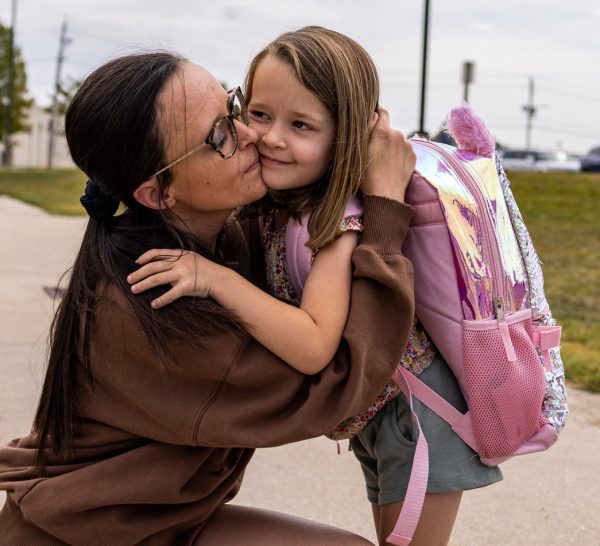
When Bannister relapsed last year and was not able to find a suitable program in the state, leaving had consequences beyond the inconvenience.
After Bannister was admitted to the program in Colorado, she subsequently lost her job in Iowa City.
“I didn’t have a choice,” Bannister said.
Olgren, who still lives in Iowa, said the UI’s inpatient treatment program helped her overcome struggles with daily functions including cooking meals. She also said there were group discussions surrounding disordered eating that she found helpful for promoting positivity while she was inpatient.
Without access to an inpatient program in the state, Olgren said these things are current struggles for her.
Along with her own fear of relapse, she is worried about her three daughters developing an eating disorder and not having access to the same inpatient care that helped her recover.
“Just knowing that that was there for me to go to if I needed to, or knowing that if this disease passed along to my kids, that there was something that they could go to — it is so important,” she said.
While she does see a psychiatrist for her eating disorder, Olgren said she still sees the physical impacts of her eating disorder on her body.
“I still struggle with the daily,” Olgren said. “My family watches me struggle with it. My girls watch me struggle with it.”
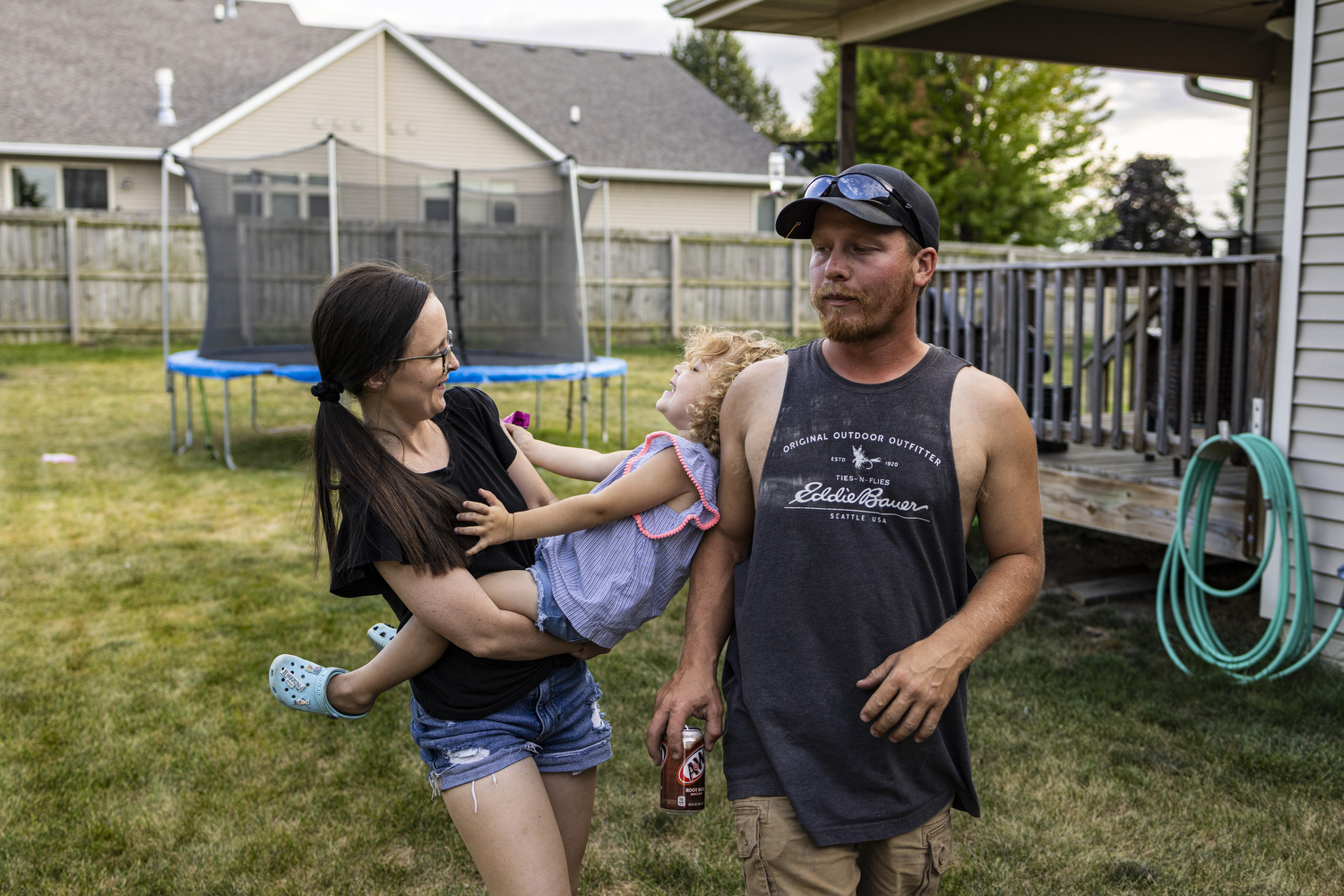
Options in the state
According to a Harvard report on eating disorders across the country, nine percent of Iowans — 277,830 people — will have an eating disorder in their lifetime.
Gabriella Sloan, a representative from the Eating Disorder Coalition of Iowa and practitioner for eating disorder care in the Quad Cities area, said only around 10 percent of people with eating disorders are underweight.
Anorexia nervosa, bulimia nervosa, binge-eating disorder, and avoidant restrictive food intake disorder are all different manifestations of disordered eating that have distinct symptoms and treatment plans, according to the National Institute of Mental Health.
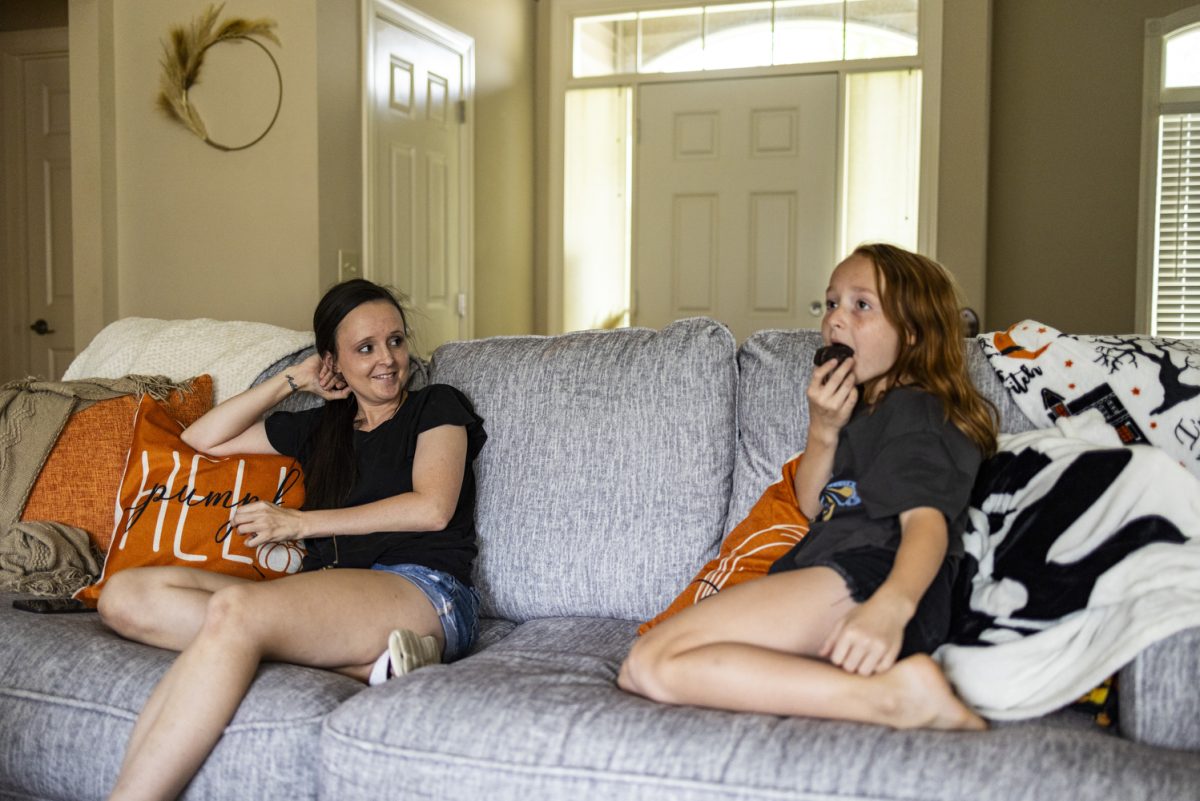
Sloan said the lack of treatment and specific programs in the state of Iowa also lead to foundational misunderstandings in the medical field.
“A lot of medical providers don’t even think of eating disorders unless they think of underweight,” Sloan said. “You can’t just look at a number on a scale to determine that. You have to do a comprehensive assessment and understand what disordered eating looks like.”
With a lack of general understanding coupled with limited resources, Sloan said some patients had no choice but to go out of state and receive care. For others, however, going out of state is not possible.
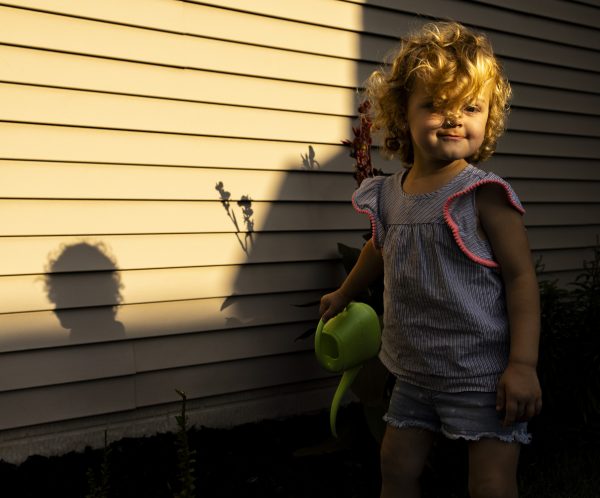
Limitations on insurance companies and coverage plays an important role in where patients can receive care. Sloan said individuals whose insurance won’t cover out-of-state programs and cannot pay out of pocket have “no options” for needed inpatient treatment.
As an outpatient practitioner, Sloan said she saw a large uptick in patients after the closure of the UI inpatient clinic. At times, Sloan said she would do pro bono eating disorder cases because her practice is in Rock Island, Illinois, and certain Iowa insurance companies aren’t accepted for out-of-state treatment.
“There was such a huge need for eating disorders, and I would get constant referral requests, but I couldn’t take them all,” she said.
For Olgren, who could not travel out of state for treatment, the loss of Iowa’s inpatient program was especially hard.
“It’s hard for us to fight,” Olgren said. “It’s not like we aren’t trying.”






